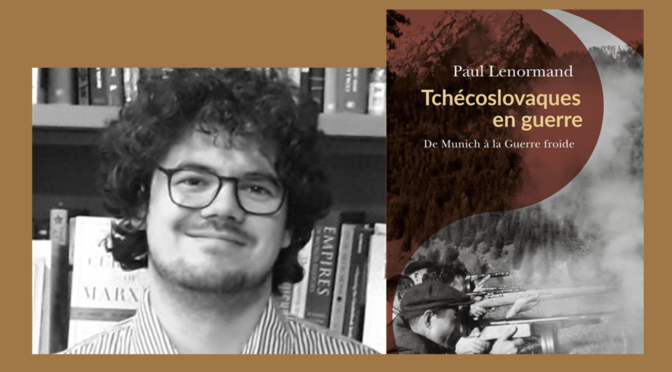Discussion around Paul Lenormand’s book Tchécoslovaques en guerre (Passés composés 2023)
Date: 7 December, 2023, from 4 p.m.
Location: CEFRES, Na Florenci 3
Language: English
Organizors: CEFRES; University Paris-Nanterre / Institut des sciences sociales du politique (ISP); Research Center „Postwar(s). Political and Social Changes during and after the Second World War“ at the Institute of International Studies, Faculty of Social Sciences, Charles University (IMS FSV UK)
Chair: Jakub Štofaník, Masaryk Institute and Archives of the Czech Academy of Sciences (MÚA AVČR)
Discussant: Václav Šmidrkal, Institute of International Studies, Faculty of Social Sciences, Charles University (IMS FSV UK)
In his recent book, the author narrates Czechoslovak experiences of the Second World War, with a focus on military actors, home and in exile, under Allied command or with the Axis. It also looks at postwar and Stalinist transformations, especially in the Czechoslovak military, throughout the Third Republic period and until the end of Čepička’s leadership. The book is an attempt to answer a few key questions related to the balance of power in the resistance, to the weight of military collaboration with Nazi Germany, to the rise of the Communist Party in units under Soviet command and to the cooperation with the Allies abroad and during the uprisings; and, for the postwar, the book discusses the cleansing process in the army, the importance of newcomers, the changing relation to politics and authority, the February 1948 Coup, the purges and violence under communism, the revolutionary and ordinary life in the military, and the global scope of the integration in the Soviet Bloc. This work of social, political and military history rests on Czech, Slovak, American, British and French records mostly, and has benefited from the large body of Czech and Slovak publications on war and communism.
Paul Lenormand, PhD, is an Assistant Professor in contemporary history at University Paris-Nanterre and a researcher at Institut des sciences sociales du politique (ISP). He is also an associate researcher at Sciences Po Centre d’Histoire. During his doctoral studies, he has spent a lot of time in the Czech and Slovak archives, and has published a few articles and volume chapters on Czechoslovak history. He notably worked at CEFRES for a year before studying and teaching at Yale University for a semester. This book is his first monograph and he continues to conduct research on Central Europe, notably Czechoslovak and Polish actors during WWII and the Cold War.

